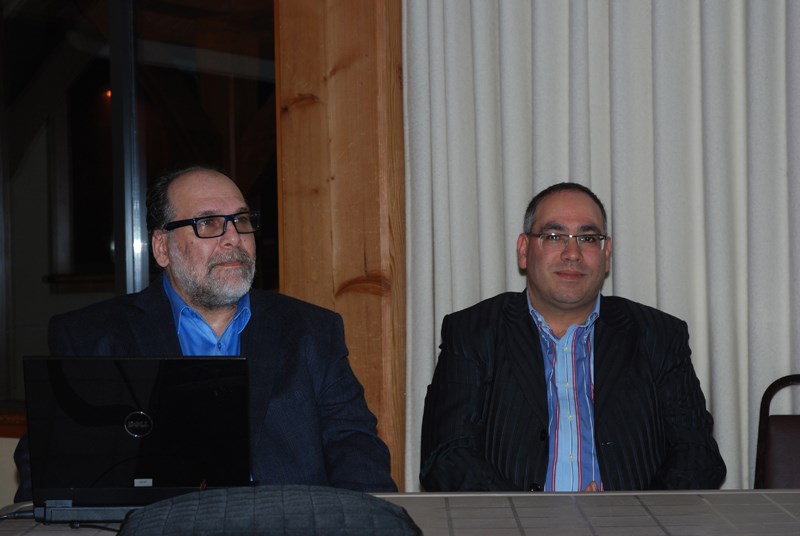The Sunshine Coast could house 25 medicinal grow ops and fill 35 per cent of the B.C. bud quota in the future, consultants told those gathered for an information meeting on medicinal marijuana last week.
“We have projected $1 billion in medical marijuana sales from B.C. by 2024,” medical marijuana business consultant Yoram Adler told a crowd of about 70 people gathered at the Seaside Centre in Sechelt Oct. 8.
“How many facilities will these annual sales translate to for the Sunshine Coast? At forecasted sales of almost 44,000 kg, we have $350 million, giving us annual average sales per facility at $15 million, for each of the estimated 25 facilities. So we would require approximately 25 facilities throughout the Sunshine Coast.”
He said the Coast is the perfect place for several “smaller” 30,000 square-foot facilities because the ferry on either end of the coastline creates a “choke point” for potential thieves wanting to take their plunder to the marketplace.
He also noted that smaller facilities are less appealing to thieves and that Health Canada stipulates product ready for sale must be stored in a vault, further deterring theft, which is a primary concern addressed in the new Health Canada regulations.
While the information meeting seemed aimed at the benefits of medicinal marijuana production on the Coast by Adler and Michael Archer of Archer Adler Consulting Solutions, the event was originally meant to be an information session run by members of Health Canada.
Sechelt council had requested members of Health Canada come to explain the new Marijuana for Medical Purposes Regulations (MMPR) to the community. Calls to Health Canada by chief of innovation and growth Ron Buchhorn went unanswered.
While District staff is still working on setting up a meeting with Health Canada officials, Buchhorn said he was pleased Archer and Adler could host an information session for the public at no charge.
Adler predicted that medicinal marijuana will become B.C.’s biggest cash crop now that commercial growing in Canada is legal, and he encouraged the Coast to get in on the harvest.
“The courts have said either reasonable access is provided to medical marijuana for patients, or the law prohibiting marijuana is null and void in its entirety,” Adler said.
“The order of the highest court, the Supreme Court of Canada, is so final that even the government of Canada and Health Canada are forced to comply regardless of their own publicized reservations.”
Archer pointed to Canada’s reluctance to endorse marijuana as the reason the federal government has been slow to release information and answer questions about the new MMPR.
“You can see that Health Canada doesn’t want this. They would prefer it doesn’t exist, but because they have no choice, they have to implement regulations and they have to provide patient access through some form of supplier,” Archer said.
He encouraged the Coast to get on the medicinal marijuana bandwagon, noting the facilities have to be built somewhere, and “if the federal government can’t stop it, neither can anyone else.”
Adler suggested three options open to municipalities at this time.
“Regulate medical marijuana production facilities in the industrial as well as the ALR (agricultural land reserve); restrict medical marijuana facilities in industrial zones but allow it in the ALR as is occurring in Maple Ridge; or blanket restrict medical marijuana production facilities in both industrial zones as well as the ALR and face licensed marijuana producers receiving Health Canada licences despite objections with no regulations aside from the MMPR whatsoever.”



